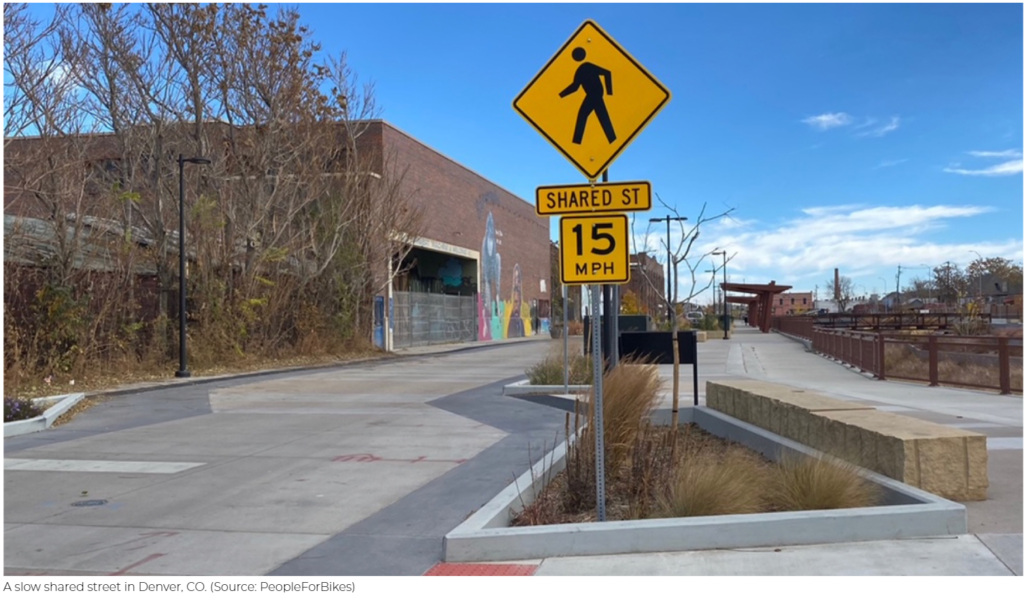Charlotte earns 27 out of 100 in 2023 People for Bikes city rankings
 The 2023 People for Bikes City Ratings have been released, revealing how major cities across the United States are prioritizing bicycle infrastructure to promote safe cycling for all ages and abilities.
The 2023 People for Bikes City Ratings have been released, revealing how major cities across the United States are prioritizing bicycle infrastructure to promote safe cycling for all ages and abilities.
Charlotte came away rating 27 out of a possible 100 points. Let’s take a look at why our city earned this rating and ways that investing in bicycling infrastructure can make our city safe for people of all ages and abilities.
How the people for bikes city ratings work
People For Bikes’ mission centers around promoting bicycling as a real solution for supporting health, community connection and the well-being of state and local economies. Its 2023 City Ratings measures bicycle accessibility to the following areas:
- Residents
- Opportunity
- Core services
- Recreation
- Retail
- Transit
In other words, this survey scores how easy or difficult it may be for you to get to your nearest grocery store, hospital or park with a bicycle. The overall rating is out of 100, with higher scores signifying better accessibility.
Charlotte’s bicycle infrastructure scores
Charlotte’s overall rating places it within the 59th percentile, with a “large city” score of 120 out of 163. Areas where the city saw major room for improvement include access to core services (20) and transit (18).
More details are available in this stress map of Charlotte
To put these ratings into perspective, let’s take a look at Charlotte’s sister city of Denver, Colorado. Denver has an overall rating of 42 and scored 38 for core services, which is almost twice that of Charlotte’s score.
Based on its rating, Charlotte clearly needs to invest more in bicycle infrastructure to make the city safer and more accessible for all residents, and to uphold the Strategic Mobility Plan’s goal of reducing single-person car trips to 50% mode share by 2040.
Sprint principles provide safer routes
People for Bikes offers helpful instructions for communities to provide safer routes for people who ride bikes. Their SPRINT principles include:
- Safe speeds: Implement traffic-calming features and establish safe residential speed limits of 25 mph or less.
- Protected bike lanes: Include concrete planters, bollards and curbs in street design.
- Reallocated space: Dedicate space for wider sidewalks, protected bike lanes, dedicated spaces to bike or board the bus, shade trees and benches, and intersection treatments like crossing islands, stop signs, and traffic signals.
- Intersection treatments: Provide spaces to stop and observe oncoming traffic rather than having to cross very wide roads all at once.
- Network connections: Prioritize compact development and strong networks that improve the ease of getting around.
- Trusted data – Implement state standards for cataloging and measuring bicycling infrastructure.
Can you see how applying SPRINT principles has the ability to convert high-stress streets into efficient, safer, low-stress streets?
How to improve bicycle infrastructure in Charlotte
So how do we make these improvements in Charlotte? Our current bike network is fragmented. Cyclists can ride for a few blocks in a bike lane before it disappears, leaving them to share the road with cars before the next stretch of bike lane starts. You might have seen or experienced these gaps along Remount Road, Oaklawn Avenue, and North Tryon Street. We are advocating to close these gaps and improve existing bicycle infrastructure to fit the SPRINT principles outlined above.
By implementing the SPRINT principles, investments in bicycle infrastructure will reduce noise, air pollution, and congestion while promoting walkability. They effectively create a seamless low-stress network that invites residents to travel to and from everyday destinations without the hassle of needing a car.
Want to help us advocate for a safe, connected bike network? Contact Hope Wright (hope.wright@sustaincharlotte.org) for next steps!
Thanks for reading!
As a nonprofit, community support is essential for us to keep doing what we do — including providing free articles like this. If you found this article helpful, please consider supporting Sustain Charlotte.
Want to stay in the loop? Subscribe to our weekly newsletter and follow us on Instagram, Facebook, and Twitter.
